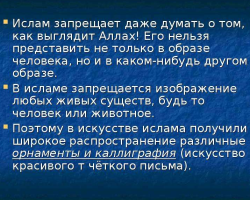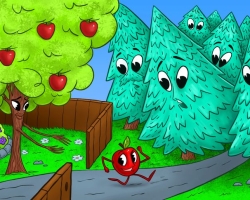Phraseologisms are stable phrases, the essence of which, as a rule, is clear to everyone without explanation. But where did they come from, how did they arise and why they fell in love with the people so much that they have been transmitted from mouth to mouth?
Content
- What does phraseology mean “without a king in the head”?
- "Without the king in the head": The origin of phraseology
- "Without the king in the head": the brief meaning of phraseological units
- "Without the king in the head": an explanation in one word
- “Without the king in the head”: how to make a sentence with phraseology?
- What synonyms can be chosen for phraseological units “without a king in the head”?
- Video: a lesson on the topic "phraseological units"
Let's try to figure out the example of phraseology "without a king in his head." Do you know what is the meaning of this stable phrase?
What does phraseology mean “without a king in the head”?
- "Without the king in the head" -This is a stable expression that is used not only to people with some mental abnormalities. Such an epithet can be awarded on occasion of each of us.
- There are no perfect people, there are times when, in a fit of despair or during some life troubles, a person behaves impulsively and not quite adequately.
- It is in such cases that they say: "He (she) without a king in his head." Of course, to hear such words about yourself is not very flattering, but, you see, they still sound not as insulting as, for example, an idiot or a nonsense.

"Without the king in the head": The origin of phraseology
- According to the linguist T. Rosa (Ist. “Big phraseological dictionary for children”) Phraseologism “Without a king in my head” was torn from the context of a Russian proverb that came to us from the depths of centuries: "Everyone has their own mind, their own king in his head."
It is clear that we are talking about the human mind - both in the proverb itself and in the derivative of it. We conclude, in this phraseology “king” is the embodiment of mind and reason. Accordingly, if he left his head for some reason for some reason, then about a person we can say that he is bad, stupid, eager or crazy.
"Without the king in the head": the brief meaning of phraseological units
- They say about a person "without a king in his head" when he behaves Stupid, recklessly and irresponsible from the point of view of society. You can just as accurately respond to an empty, scattered person who does not hold his word, forgets about the planned meetings or confuses the time and place where they should take place.
- Such people are always somewhere they are late and commit rash actsoften leading to unpredictable consequences. Moreover, they are often committed not only to the detriment of others, relatives and friends, but also to the detriment of themselves.

"Without the king in the head": an explanation in one word
- An explanation of phraseology “without a king in the head” essentially lies on the surface. If a a man is empty, stupid, crazy, eccentric, bad, idiot, nonsense, desperate, impulsive and prone to stupid antics From the point of view of society, this is said about it.
- Choose a synonym for phraseological units It is possible in one word from a modern vocabulary - "anesthetic."
“Without the king in the head”: how to make a sentence with phraseology?
- The options for sentences can be compiled by a simple set, since there is an endless series of human actions that fall under such a definition.
- It is quite possible to imagine a grandfather who grumbles displeasedly with his “painful” grandson, mastering a new bike: “I have gone crazy, rushing through the streets, as if without a king in your head,” you will break it. ”
- Or another example: in some cafe, a tipsy visitor suddenly begins to behave too cheekily. The waitress turns to the guard: "" Please lead out of the establishment of this client, who is without a king in his head - he picked up to me and prevents other visitors from resting. ”
- A little girl tells her children's kindergarten to educators: “Mom says that our dad does not have a king in his head, because he forgets everything and does not know how.”
What synonyms can be chosen for phraseological units “without a king in the head”?
- With the semantic content of phraseological units “without a king in the head” there are many synonyms.
- Here are just some of them: “Everyone has his own king in his head”, “His mind is the king in his head”, “Two ear head”, “Swims without a steering wheel, without windbreak”, “He is not friends with his head.”

This series can still be replenished for a long time, because stupidity has a lot of names, in contrast to happiness and love. Be reasonable, wise and happy so as not to replenish the line of those people who are popularly said: they are without a king in their heads!
Interested in phraseologisms, then we advise you to read:
- "Sit in one's hands"
- "Every family has its black sheep"
- "Happy hours do not observe"
- "Bear in the ear has come"
- "I got up from the wrong foot"







